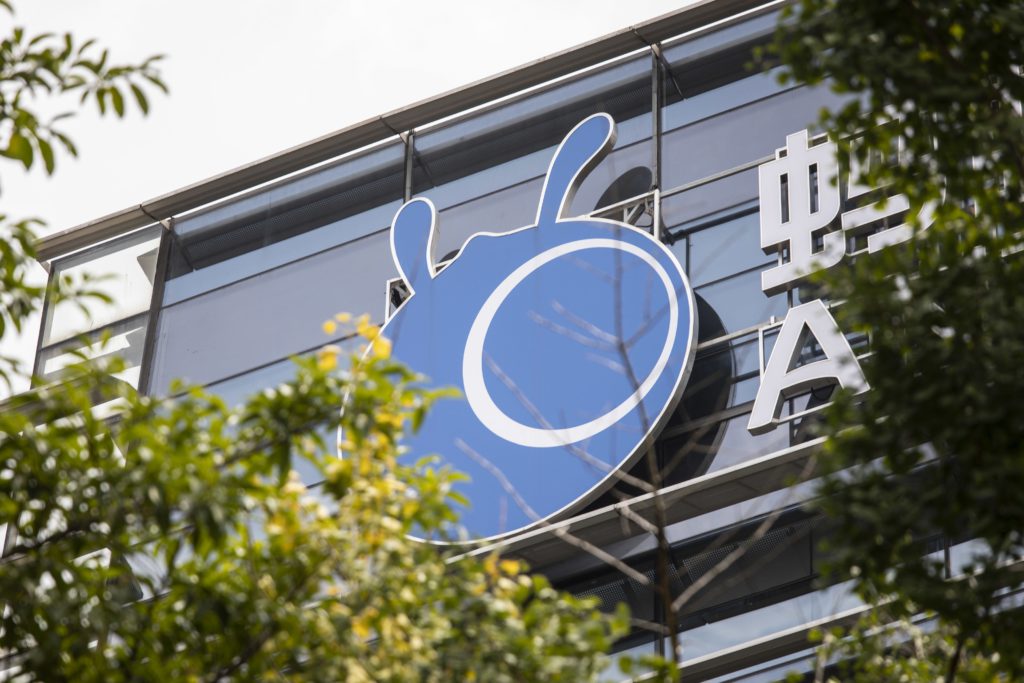(Bloomberg) — China’s top anti-graft watchdog was among the agencies involved in a recent inquiry into links between Jack Ma’s Ant Group Co. and state-owned Chinese companies, according to people familiar with the matter, escalating the risks for the country’s most recognizable tech tycoon and his internet empire.
The Central Commission for Discipline Inspection was seeking to understand the influence of Ma’s fintech empire and the extent of its transactions with state banks and enterprises, the people said, asking not to be identified discussing a sensitive issue. The agency’s involvement hasn’t been previously reported.
The CCDI, which oversees corruption probes involving senior members of the Communist Party, was involved in the queries sent to state firms in February about their exposure as part of its investigation of former Hangzhou party chief Zhou Jiangyong, one of the people said. Both Ant and Alibaba Group Holding Ltd. are headquartered in Hangzhou.
Chinese prosecutors this week charged Zhou with accepting “huge” bribes, though the statement from the Supreme People’s Procuratorate did not name Ant or any other companies. One person familiar with the situation said that though state-owned banks and enterprises had already submitted their reports on any exposure to Ant, there had yet to be a follow-up decision by senior leaders on any additional action. It’s unclear whether the probe is ongoing.
In January, Zhou appeared in a state media documentary that claimed the former party secretary used his influence in the Chinese tech hub to help his younger brother’s businesses. One of those companies received investment from a firm controlled by Ant, according to a local media report in August. Neither Ant nor Ma have been accused of wrongdoing related to the case.
Ant didn’t immediately respond to a request seeking comment. Calls to CCDI representatives went unanswered.
Shares of Alibaba, which owns a third of Ant, slumped as much as 4.7% in Hong Kong on Thursday. It was the biggest decliner on the benchmark Hang Seng Index.
Read more: China Charges Ex-Hangzhou Party Chief With Taking ‘Huge’ Bribes
Xi Jinping’s administration has pursued an unprecedented campaign to root out graft within the Communist Party, regarded by observers as a means to legitimize his government while tamping down internal dissent. Most recently it’s empowered the CCDI to go after officials in the financial industry, initiating a campaign that’s ensnared dozens of executives in the sector.
The nation’s top anti-graft group in January made rooting out corruption tied to “disorderly expansion of capital” one of its priorities, acquiring a mandate to examine decades of cozy ties between government and the big businesses that help local officials boost employment and meet growth targets.
More than a year after the Chinese government snuffed out the biggest initial public offering in history by Ant, Beijing continues to scrutinize every corner of China’s technosphere. Officials have handed out billions of dollars in antitrust fines to end the domination of a few heavyweights as President Xi pushes for more “common prosperity.”
Ant was among the hardest hit. Beijing scuttled the fintech giant’s $35 billion IPO in November 2020, ordering it to overhaul businesses including lending, insurance and wealth management, and set up a financial holding company so it could be regulated like a bank.
As part of the restructuring, Ant has ramped up its capital base to 35 billion yuan ($5.5 billion) and moved to build firewalls in an ecosystem that once allowed it to direct traffic from Alipay, with a billion users, to services like wealth management, consumer lending and delivery. Consumer loans jointly made with banks were split from its “Jiebei” and “Huabei” brands. Assets under management at its money-market fund Yu’ebao — once the world’s largest — dropped by more than a third last year to 765 billion yuan by December.
The myriad restrictions mean Ant is worth a fraction of its former self as its growth prospects wane, according to some of its early Wall Street backers. Fidelity Investments slashed its valuation estimate for at least the second time last year to about $78 billion as of June 30. Others are more optimistic: BlackRock Inc. values the company at $174 billion and T Rowe Price Group Inc. views it at $189 billion.
(Updates with share slump in the seventh paragraph)
More stories like this are available on bloomberg.com
©2022 Bloomberg L.P.











